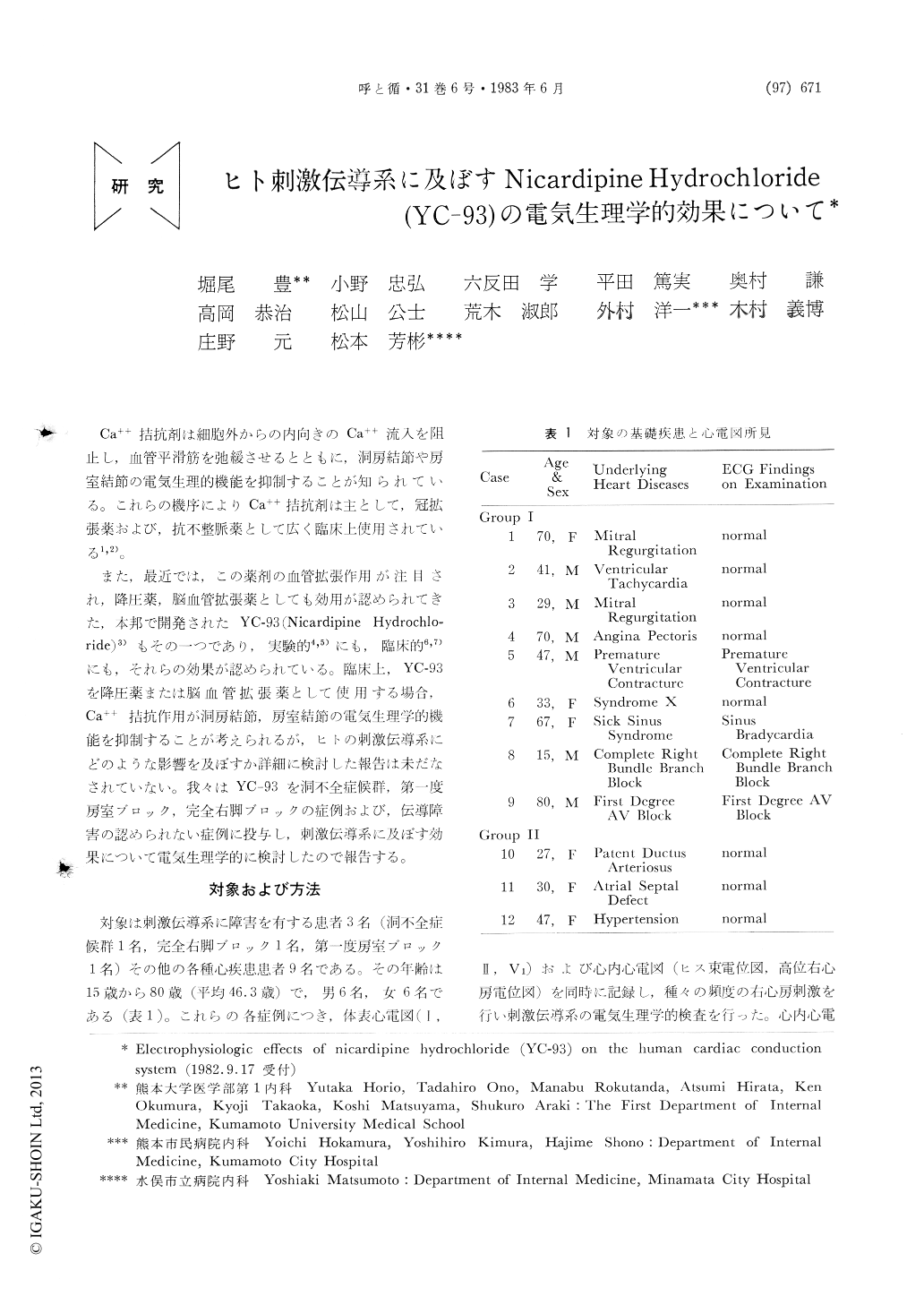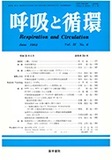Japanese
English
- 有料閲覧
- Abstract 文献概要
- 1ページ目 Look Inside
Ca++拮抗剤は細胞外からの内向きのCa++流入を阻止し,血管平滑筋を弛緩させるとともに,洞房結節や房室結節の電気生理的機能を抑制することが知られている。これらの機序によりCa++拮抗剤は主として,冠拡張薬および,抗不整脈薬として広く臨床上使用されている1,2)。
また,最近では,この薬剤の血管拡張作用が注目され,降圧薬,脳血管拡張薬としても効用が認められてきた,本邦で開発されたYC-93(Nicardipine Hydrochloride)3)もその一つであり,実験的4,5)にも,臨床的6,7)にも,それらの効果が認められている。臨床上,YC-93を降圧薬または脳血管拡張薬として使用する場合,Ca++拮抗作用が洞房結節,房室結節の電気生理学的機能を抑制することが考えられるが,ヒトの刺激伝導系にどのような影響を及ぼすか詳細に検討した報告は未だなされていない。我々はYC-93を洞不全症候群,第一度房室ブロック,完全右脚ブロックの症例および,伝導障害の認められない症例に投与し,刺激伝導系に及ぼす効果について電気生理学的に検討したので報告する。
Electrophysiologic studies were conducted in 12 patients with cardiac diseases (including sick sinus syndrome, complete right bundle branch block, first degree AV block and so on) before and after intravenous administration of nicardipine hydrochloride (YC-93), a new calcium antagonistic agent. In 9 patients (Group I), sinus arrest, marked sinus bradycardia and deterioration of AV conduction were not induced after administration of YC-93. Mean sinus cycle length (SNCL) (± SD of the mean) were 956.1±364.8 msec before and 782.7±231.5 msec after YC-93 (difference not significant= NS).

Copyright © 1983, Igaku-Shoin Ltd. All rights reserved.


